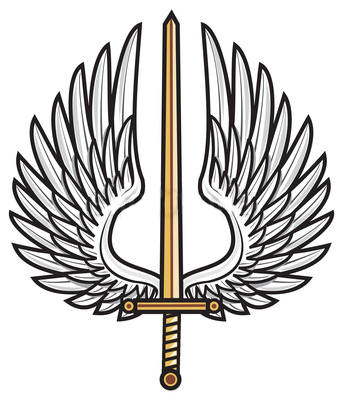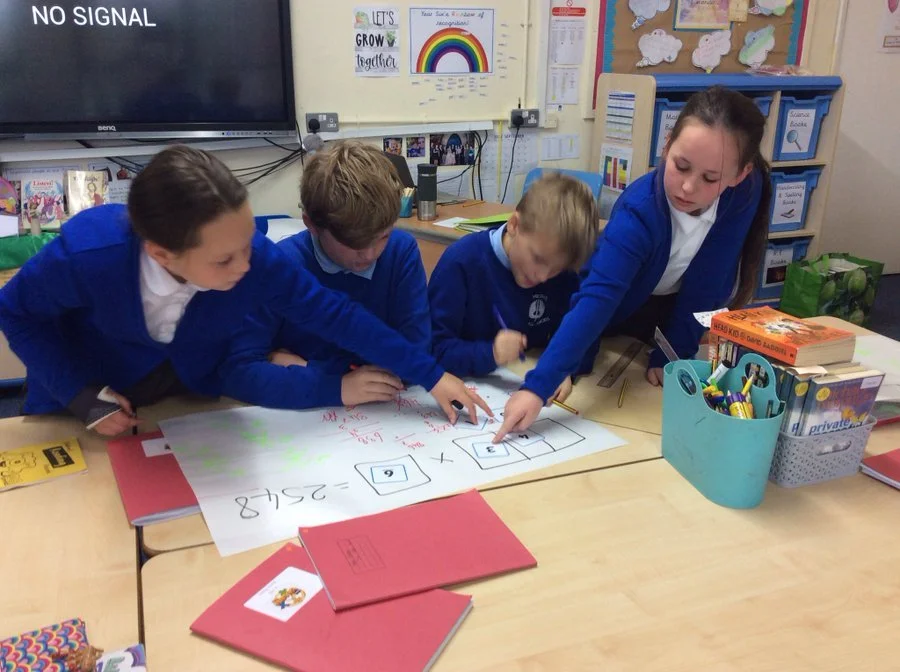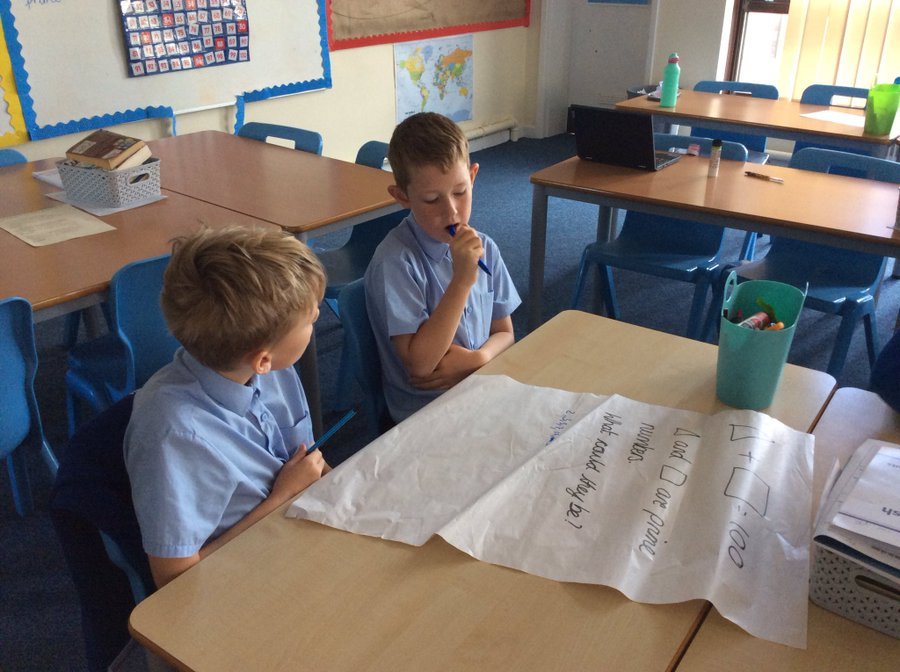Aims:
The 2014 National Curriculum for Maths aims to ensure that all children:
• Become fluent in the fundamentals of Mathematics
• Are able to reason mathematically
• Can solve problems by applying their Mathematics
At St Michael and All Angels, these skills are embedded within Maths lessons and developed consistently over time. We are committed to ensuring that children are able to recognise the importance of Maths in the wider world and that they are also able to use their mathematical skills and knowledge confidently in their lives in a range of different contexts. We want children to make rich connections across mathematical ideas to develop fluency, mathematical reasoning and competence in solving increasingly sophisticated problems. We want all children to enjoy Mathematics and to experience success in the subject, with the ability to reason mathematically. We are committed to developing a sense of enjoyment and curiosity about the subject, as well as an appreciation of the beauty and power of Mathematics.
Intent:
The intention of the maths curriculum at St Michael and All Angels Catholic Primary School is that children are taught to become competent and independent mathematicians with an emphasis on teaching with understanding. The ‘mastery approach’ to teaching maths is the underlying principle of Mathematics Mastery. Instead of learning mathematical procedures by rote, we want pupils to build a deep conceptual understanding of concepts which will enable them to apply their learning in different situations. Through mathematical talk, children will develop the ability to articulate, discuss and explain their thinking. We will provide the children with the necessary resources to allow all children to access the curriculum and encourage them to use this where appropriate to explain their logic and reasoning. Supporting and encouraging children to discover that Mathematics is ‘figure-out-able’
Implementation:
At St Michael and All Angels Catholic Primary School, we recognise that in order for pupils to progress to deeper and more complex problems, children need to be confident and fluent across each yearly objective. We have adapted the White Rose long-term plan to ensure that the coverage for the year is completed. As a one-form entry school, we use these plans to ensure that all objectives from the National Curriculum are covered for each year group and that we are planning to the four key principles to deepen children’s understanding.
We use four key principles using a CPLA (Concrete Pictorial Language Abstract) to deepen pupils’ understanding:
1. Conceptual understanding
2. Language and communication
3. Mathematical thinking
Each National Curriculum objective is broken down into fluency, reasoning and problem solving; our teachers use challenges, or other sources outlined below, to teach for mastery - an approach to extend and deepen the understanding of pupils within each year group. Our teaching staff use White Rose in conjunction with a range of other useful resources such as Tara Loughran- Total Maths, NCETM, I See Reasoning, NRich and Classroom Secrets.
Impact:
The children complete daily retrieval questions, these are used by the class teacher to inform planning and interventions. Summative assessment takes place at the end of each term and children’s progress and attainment is discussed with senior leaders in pupil progress meetings. Formative assessment takes place on a daily basis and teachers adjust planning accordingly to meet the needs of their class. The teaching of mathematics is monitored by leaders through; lesson observations, pupil voice and book looks.
Calculations Policy
Our calculation policy has been developed and agreed after using the National Curriculum objectives and methods.
At St Michael and All Angels RC Primary School we recognise that mathematics can only be used effectively when the user understands the tool, and has ownership of it. With our calculation policy, we can be confident throughout school, that the hard work we all put into teaching the children each year to calculate, will be consolidated and extended the following year.
By agreeing on the use of strategies and mathematical language the children will be taught in a consistent way in all classes, developing their understanding as they progress through school. This will hopefully cause less confusion for the children and ensure they have the necessary strategies and scaffolding to enable them to solve mathematical problems.
Children will then be encouraged to use the calculation strategies they are secure with, whether done mentally or using pencil and paper methods.
We want all of our students to leave our school as resilient, autonomous learners with curious minds, solid mathematics foundations, and a passion to keep learning.
Maths Lessons
Concrete, Pictorial and Abstract
At St Michael and All Angels we use information from the White Rose Maths Hub and activities developed by Tara Loughran to successfully implement problem solving and reasoning across all key stages and develop mastery in mathematics.
An example of the concrete, pictoral, abstract approach to a mathematical concept
Concrete
We use concrete apparatus such as bead strings, tens frames and counters, base 10 (dienes) and much more so that the children have a hands on approach and can really see what is happening with the numbers they're using.
Pictorial
We use a lot of models and images to help the children move on from the concrete objects.
Abstract
Once the children have manipulated concrete objects and investigated the relationships between numbers through models and images they should be confident to tackle more abstract calculations.


























